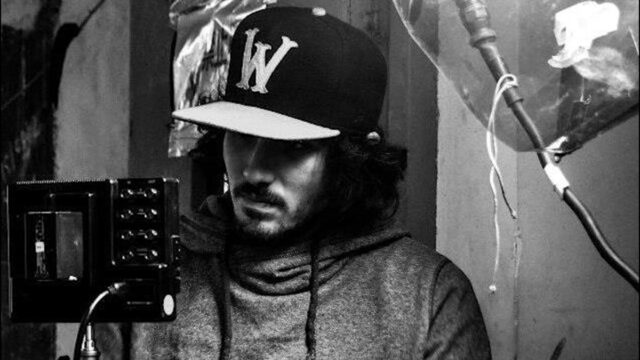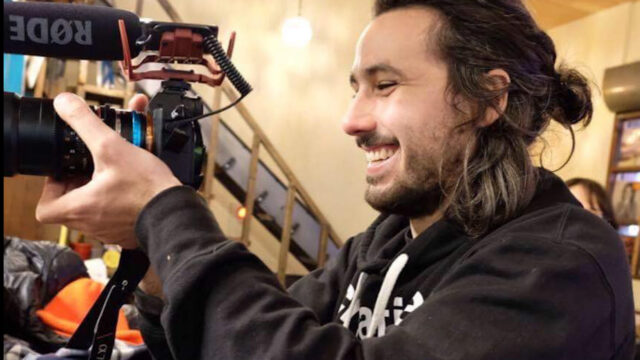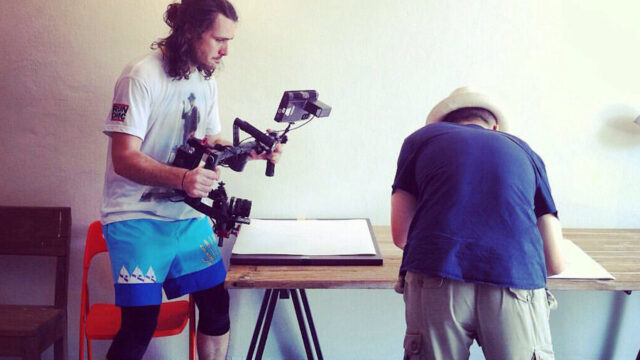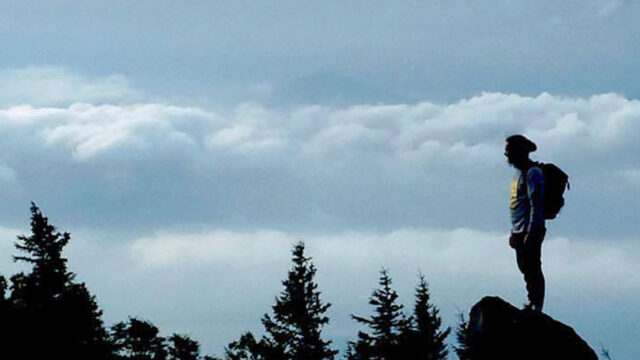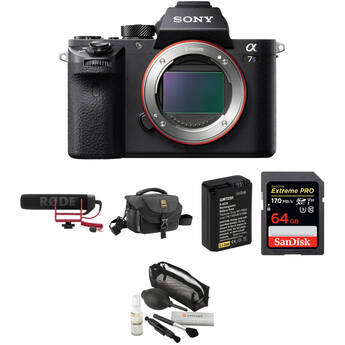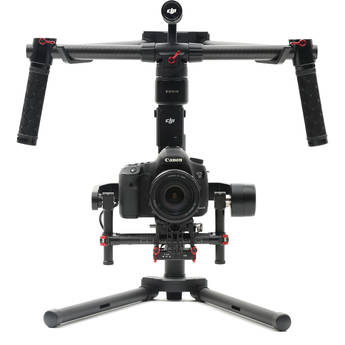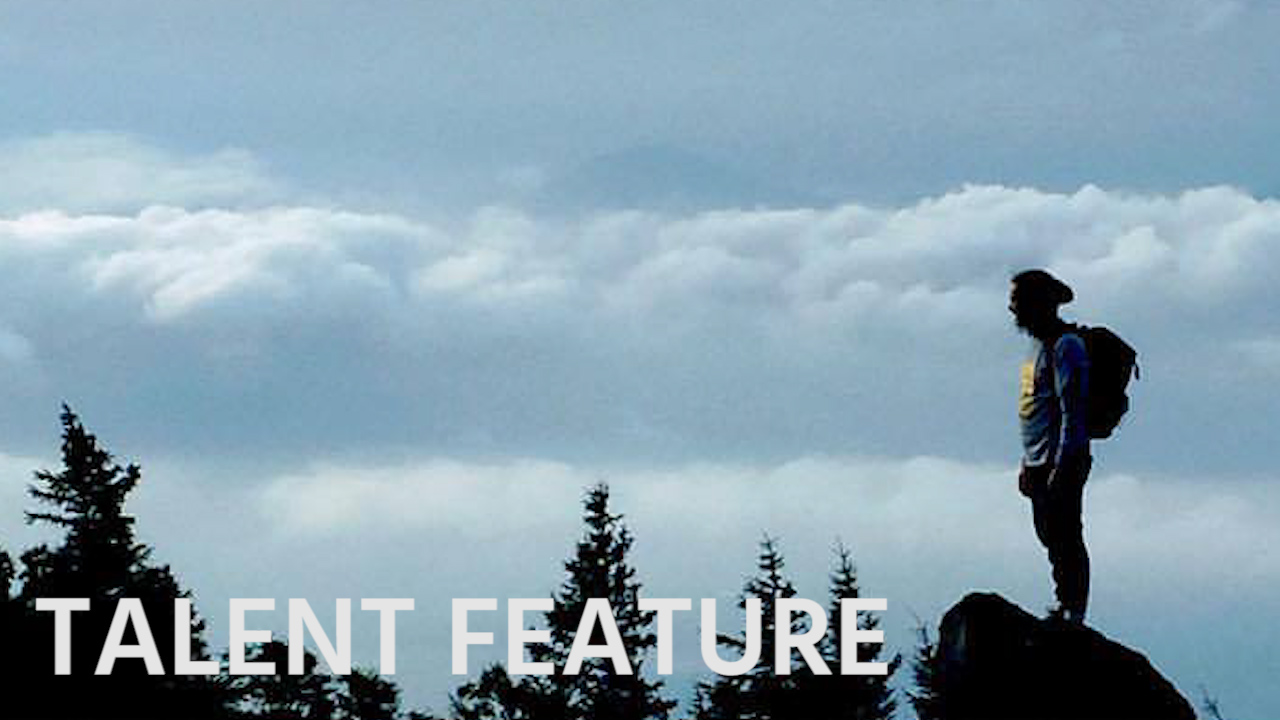
My name is Jeremy Rubier. I’m a filmmaker based in Tokyo, traveling the world and shooting high end contents everywhere I go. I’m also an editing freak and composer. I love getting to know places and people in depth and do poetic portraits where I can infuse my style in the already amazing life of someone. I also love to get really close from my subject and make really personal and artistic documentaries. I usually shoot, edit, and because I study music for 6 years in Paris I try as much as I can to compose the music of the project. Because of this knowledge of music and sound, I can really create a link between my images, sound and editing. I think it’s my strength. My clients go from RedBull to National Geography, and I’m more and more approach by bigger network who want me to shoot feature documentaries (currently in Singapore shooting a feature doc for one of Asia’s biggest network). When I shoot fiction movies, I completely change my style and become a director only, giving my DP/AD a lot of freedom to do whatever they want with my stories.
Name and age: Jeremy Rubier, 29 years old.
Currently based in: Tokyo
Language(s) spoken: English, French, Spanish and Japanese
Occupation: Filmmaker
How did you get started in our industry? I started by shooting club videos right after graduating from the most prestigious films school in Canada (Mel Hoppenheim School of Cinema). I hated the intellectualization of movies they tough us and decided that I would make a proper feature at one point but I wanted to get my hands dirty first. Met the craziest club owner of Montreal, traveled with him to Miami for the WMC festival, then went to Los Angeles to shoot at the playboy Mansion (I was 20, lost my mind there), shot a bunch of famous DJ’s (Skrillex, Calvin Harris, Avicii…) and got enough material to make a good real. Then, moved to New York. From there, I haven’t stayed at the same place more than one year. My passion for Asia made me move to Shanghai, Hong-Kong and now I’m based inTokyo.
Current Assignments: I’m currently shooting a feature length documentary for one of the biggest Asian Networks (secret!) in Singapore. At the same time, I’m editing my latest short movie shot in Bangkok with one of the main actor of “only god forgives”. I’m also in constant contact with producers in Montreal and Tokyo to found my first feature fiction, a crazy story that would take place on a remote Japanese Island…to be continued.
What types of productions do you mostly shoot? I mostly shoot high end documentaries or art videos.
What is your dream assignment / job in our industry, and what are you really passionate about? My dream is to direct a proper feature. I don’t have to write it, but to purely direct it and surround myself with a small team of incredibly talented people. And from there only work on fiction, it can be feature length movies or TV shows, as long as I direct them I will be happy. That’s my real dream, but I try to infuse this dream in any work I do, and be as cinematographic as I can in my documentaries and content piece.
In the work that you are presenting us, now that it is done, what would you have done differently throughout the production? I think the production of the current project was quit on point. We did three days of scouting (with my padawan assistant) talked to locals and we were really ready! The only thing I wish is, that we would have more time to go in depth with the youngsters we see at the end of the video and develop their stories…but shit happen and you can’t control your talents. Another thing that bothered me, and I think that it should be address is that the city of Toyooka didn’t have any real interesting marketing plan to diffuse the video. I think it’s important for filmmaker now a day to make a diffusion plan of the video BEFORE THE SHOOTING EVEN STARTS. So many incredible videos are disappearing in the mist of youtube/Vimeo because no one diffuse/share them and I think that a filmmaker now a day HAVE to learn how to promote themselves.
What current camera, lenses and sound equipment do you use? I used (and it’s my favorite set-up by far) a Sony a7S II on a DJI Ronin M with an Atomos Ninja on top of it and a Sony FS5 with a Convergent-Design Odyssey external recorder with a shoulder rig. The two lenses I mainly use are the Canon 50mm1.2 for the Sony FS5 (with Metabones Speed Booster) and the a Canon 24mm1.4 for the Sony a7S II. The Sony FS5 was equipped with the directional mic that comes with the camera. This set-up is a killer one because you have the flexibility to get perfect tracking shot in any lighting situation mixed with superb ProRes HQ footage coming straight out of the small Odyssey. The handheld super cinematic shots are captured with the Sony FS5 and can be stretched when grading (10 bit ProRes HQ 4k). The Sony a7S II footage already look epic because of the DJI Ronin and of course the location I picked. This set-up, if you got an assistant, is really the best to cover any situation that documentary filmmaking brings and always keep your cinematography on point if you want to alternate tracking shots, handheld shots and slow motion. Both camera are cheap, incredibly reliable and offer quit a lot of freedom in terms of grading (S-Log 3). I can’t wait for the Sony a7SIII to arrive and see what this puppy might do)…
What was your workflow and were you happy with the results and will you ever go that way again? Of course I’m so happy with the result. My workflow is to make deep research before any shooting, explore the place where I will shoot or spend time with my subject and really get a feel of it. Then I decide which equipment to use and which approach to take. Some projects won’t need a Ronin, I may jump to RED if I need heavy grading and slow-motion , I may just use handheld Sony a7S II if I want to be as invisible as possible in sensitive situation etc. During the shooting, I’m invisible and I never really talk to my subject, I let it be and capture the best I can.
The post production is really interesting because I usually compose the music at the same time as I’m editing. Editing during day time, composing music during night time. Music is to me like editing, you create a loop that you cut and move on a timeline and I really enjoy this process as I think it elevates my work. In the case of Toyooka video, I inspired myself from Miyazaki’s movie’s music (composed by Joe Hisaishi) to create a simple melody and use mainly “real” instruments such as flute and piano. The second part of the song is more inspired by “Maribou State music”, with acoustic percussion and stronger base. I’m really proud of the result.
What’s your favorite light equipment and why did you choose that kit over other solutions? I don’t use external lighting. Always use what I can find on location. Recently I started to use Yongnuo YN360 II LED Light Wand when I really want a stylish lighting.
Do you use drones or gimbals in your productions? If so, what is the most effective way you’ve found to deploy them? I mainly use the DJI Ronin M with a Sony a7S II, but I have recently been sponsored by Zhiyun and trying out their Crane 2 as we speak. Not bad at all with the Sony a7S II and can allow me to shoot stuff I can’t with the DJI Ronin M. But I still feel that I have more control with a two hands gimbal. Saying that, the most effective way to deploy the DJI Ronin M is to balance it and give it to your assistant when you get too tired! Really a pain in the ass when you’re alone…
No drone shot for me, I love to stay close to my subject.
What editing systems do you use? I’m a proud FCPX editor. I think that for the digital age nomad filmmaker who handle 100% of the production of his video, this software is brilliant. It’s faster on my mac than any other software, tones of plug-in and the new color interface found on version 10.4 is a killer (But way too late…Adobe Premiere had a good one 10 years ago…). I’ve got to admit that if I had to work with a bigger team, I would switch to Adobe Premiere because of the terrible integration of FCPX with non-Apple software.(AE, DUKE, PROTOOL ETC).
How much of your work do you shoot in Log and what is your preferred way of colour correcting? I shoot everything in LOG. I know how to expose it, to deal with the grain and take a complete advantage of it. I usually do a first pass of color correction, add the LUT I like, and color over the LUT to create a unique LUT (LUT at 50% opacity most of the time). I only use Blackmagic Design Davinci resolve when I shoot in RAW.
How frequently do you travel, and do you have any tips when it comes to packing your gear? I’ve got NO TIPS AT ALL about how to pack gears, I suck at it and I should really improve.
You can follow Jeremy Rubier, his creative work, by clicking here
